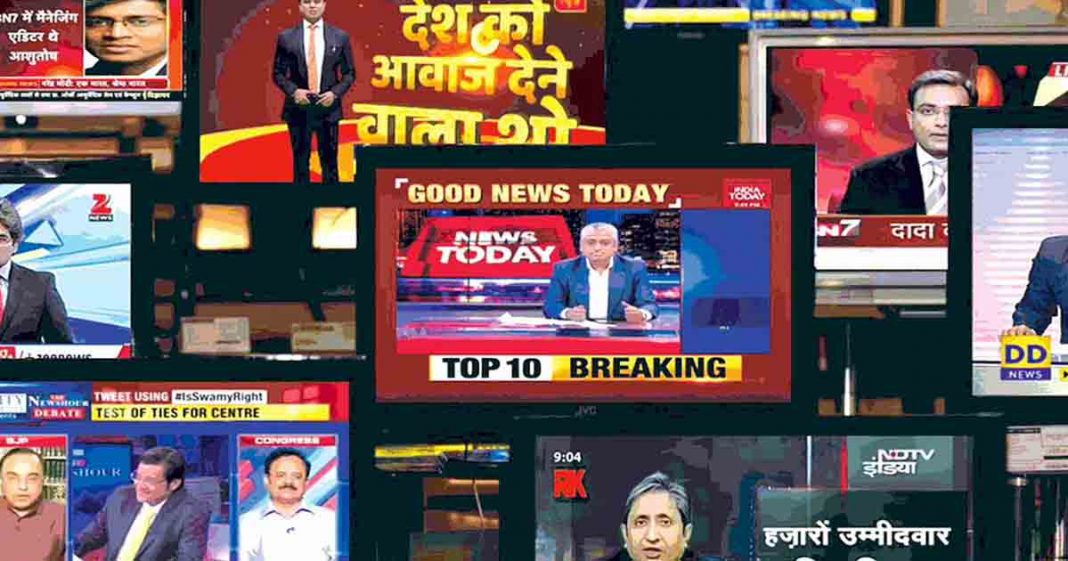
In an era defined by rapid information dissemination and digital interconnectedness, the proliferation of fake news has emerged as a formidable threat to democratic societies worldwide. Recent revelations by CNA Insider, a Singapore-based media outlet, have brought to light the extent of this phenomenon within the borders of India, shedding light on a vast network of fake media outlets operating with impunity. Through a comprehensive investigation, CNA Insider uncovered 750 such outlets originating from India, spanning across 119 countries and disseminating misinformation through 550 domain names. This pervasive spread of false information not only erodes trust in media but also undermines the foundations of democracy, posing significant challenges to India’s social cohesion and democratic integrity.
At the heart of this troubling trend lies the Bharatiya Janata Party (BJP), India’s ruling political party. The BJP’s strategic use of fake news as a political tool has been starkly revealed through its concerted efforts to manipulate public opinion and further its political agenda, both domestically and internationally. These fake media outlets, often masquerading as legitimate news sources, serve as conduits for disseminating propaganda that aligns with the BJP government’s narrative, blurring the lines between fact and fiction and undermining the public’s ability to discern truth from falsehood.
The BJP’s engagement in disseminating fake news extends beyond mere propagation; it constitutes a deliberate campaign of political disinformation. The government has been implicated in orchestrating the spread of false narratives through various channels, leveraging social media platforms and online forums to amplify its messaging. Thousands of freelance content creators have been identified as instrumental in perpetuating this misinformation, producing and disseminating content that serves the BJP’s political interests while disregarding the veracity of the information being shared.
Troll farms, another insidious arm of this disinformation campaign, play a pivotal role in spreading hate speech and misinformation in favor of the BJP government. These organized groups operate with impunity, leveraging social media platforms to amplify divisive rhetoric and inflame communal tensions. The consequences of their actions have been dire, with rumors and falsehoods often leading to outbreaks of violence and communal strife, resulting in loss of life and widespread fear within affected communities.
Despite growing awareness of the perils of fake news, efforts to counter its spread have been met with challenges. Legislative proposals aimed at regulating social media platforms and curbing the dissemination of false information have raised concerns about potential censorship and infringement on freedom of speech. Striking a delicate balance between combating misinformation and safeguarding individual liberties remains a pressing challenge for policymakers and civil society alike.
Moreover, the BJP’s exploitation of religious polarization and misinformation to sow division and suppress dissent has exacerbated social tensions within India. Journalists who seek to expose these falsehoods often find themselves targeted with threats and intimidation, facing reprisals for their commitment to truth and accountability. The chilling effect of such tactics on press freedom undermines the critical role of journalism in holding power to account and upholding democratic principles.
In the face of this multifaceted crisis, the role of the global community cannot be overstated. Social media platforms, particularly Facebook and WhatsApp, have played a significant role in the dissemination of fake news, amplifying disinformation during critical events such as elections and exacerbating communal violence. It is imperative for global leaders, regulatory bodies, and tech giants to hold these platforms accountable for their complicity in perpetuating falsehoods and undermining democratic norms.
Furthermore, international cooperation and collaboration are essential in addressing the transnational nature of fake news and its impact on democratic processes worldwide. By sharing best practices, developing robust regulatory frameworks, and promoting media literacy initiatives, the global community can work together to mitigate the spread of misinformation and safeguard democratic institutions.
In conclusion, the rampant proliferation of fake news poses a grave threat to India’s democratic institutions, social cohesion, and individual freedoms. The BJP’s cynical exploitation of this phenomenon for political gain underscores the urgent need for concerted action by both domestic and international stakeholders. Only through a collaborative effort to combat misinformation, uphold the principles of truth and transparency, and safeguard press freedom can India and the global community hope to overcome this pressing challenge and reaffirm their commitment to democratic values and civic discourse.
